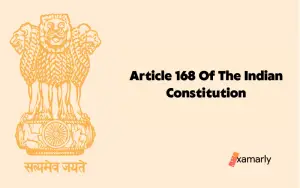The Delhi Sultanate reigned from 1206 CE to 1526 CE. The efficient administration of that period greatly influenced the provincial kingdom of India.
The judicial, finance, military, and revenue are some of the departments where officers oversaw the operation. This happened on various levels like the center, provinces & local. One of the major departments in the central administration is Diwan i Risalat. This article will be worth reading if you are preparing for history for UPSC.
- Diwan i Risalat
- Key Points about Diwan i Risalat
- Facts about Department of Foreign Affairs under the Delhi Sultanate
- Alauddin Khilji & the Diwan i Risalat
- Central Departments under Delhi Sultanate
- Officers of the Diwan i Risalat
- Summary
- FAQs on Diwan i Risalat
- What was the Diwan i Risalat in the Delhi Sultanate?
- Who headed the Diwan i Risalat?
- What were the key officers of the Diwan i Risalat?
- What was the role of the Munshi in the Diwan i Risalat?
- What was the role of the Risaldar in the Diwan i Risalat?
- Who introduced significant reforms in the Diwan i Risalat?
Diwan i Risalat
The Diwan-i-Risalat was an important department of the Delhi Sultanate, which existed from the 13th to the 16th century in India. It was charged with the responsibility of all the correspondence and communication between the Sultan (ruler) and his subjects, especially foreign rulers.
The term is derived from two Persian words – “Diwan”, meaning department, and “Risalat”, meaning letters. Thus, the department was primarily concerned with the management of letters and official correspondence.
It was headed by a high-ranking official called the “Mir-i-Risalat” or “Amir-i-Risalat”. He was in charge of managing all the communication between the Sultan and his officials, as well as with other rulers and foreign dignitaries.
The department was also responsible for maintaining records of all the official correspondence, which were kept in a register known as the “Risalat Khana”. It was a valuable source of information for the Sultan and his officials. It stored information about the political & socio-economic conditions of regions of the empire.
You might also like to read about: Art and Architecture of Delhi Sultanate.
Key Points about Diwan i Risalat
- Diplomatic correspondence and ambassadors were handled by this department.
- The Amir-i-Risalat was a crucial officer as all the Sultans were eager to retain diplomatic ties with the Central Asian nations.
- It facilitated the smooth functioning of the government and helped the Sultan to stay informed about the affairs of his empire.
- The office of the Diwan i Risalat was established by the first ruler of the Delhi Sultanate, Sultan Qutb-ud-din Aibak, in the 12th century and continued to exist under subsequent rulers.
- The Diwan i Risalat was closely linked to the Diwan i Insha, which was in charge of the drafting of official correspondence and documents.
- The position of the Mir-i-Risalat was often held by a person of great learning and was a significant position of influence in the court of the Sultan.
Also read about the dynasty of Qutb-ud-din Aibak: Slave Dynasty.
Facts about Department of Foreign Affairs under the Delhi Sultanate
Here are some facts about the Department of Foreign Affairs in the Delhi Sultanate:
- It was an important department in the Delhi Sultanate Administration. It was responsible for managing the empire’s foreign relations with other provinces.
- The head of this Department was called the “Mir-i-Mahafil” or “Amir-i-Mahafil”. He was responsible for managing diplomatic relations with other states.
- The Department maintained diplomatic contacts with states in Central Asia, the Middle East, and other parts of the world.
- The Delhi Sultanate established diplomatic relations with several foreign states, including the Mongol Empire, the Abbasid Caliphate, the Ottoman Empire, and the Chinese Empire.
- Diplomatic missions were sent to establish friendly relations and negotiate treaties and alliances.
- The Department of Foreign Affairs also managed the affairs of foreign envoys who were present at the court of the Delhi Sultanate.
- The department was responsible for maintaining records of all foreign correspondence. And also for keeping the Sultan and his officials informed about developments in foreign affairs.
- The Delhi Sultanate used diplomatic means to secure the release of prisoners of war and negotiate peace treaties with foreign powers.
- It played a crucial role in the expansion and consolidation of the Delhi Sultanate by establishing friendly relations with neighboring states. Thus, securing alliances and military support.
- It was an important institution in the Delhi Sultanate and helped to shape the empire’s foreign policy and relations with other states.
Read Also: Iqta System in Delhi Sultanate.
Alauddin Khilji & the Diwan i Risalat
Alauddin Khilji was the second ruler of the Khilji dynasty of the Delhi Sultanate, who ruled from 1296 to 1316 AD. He was known for his military conquests, administrative reforms, and economic policies.
One of his key administrative reforms was the establishment of the Diwan-i-Risalat, a department responsible for managing official correspondence and communication between the Sultan and his subjects.
Under this, he set up a sophisticated system of spies and informants to keep track of the activities of his officials and subjects. He also introduced strict regulations on the use of royal seals and signatures to prevent forgery and ensure the authenticity of official correspondence.
His reforms in the Diwan-i-Risalat helped to strengthen the administrative structure of the Delhi Sultanate and improve the efficiency of communication between the Sultan and his subjects. They also helped to ensure greater transparency and accountability in the administration, as petitions and complaints from the public were recorded and presented to the Sultan or his officials for action.
Overall, this establishment was a significant administrative reform introduced by him. It helped to streamline communication and processes of the Delhi Sultanate and improve its governance.
You might also like to read about other dynasties under the Delhi Sultanate Dynasty:
Central Departments under Delhi Sultanate
- Diwan-i-Wizarat
- Finance Department.
- Head: Wazir. The wazir was the chief financial advisor to the Sultan.
- Diwan-i-Arz
- Department of Military.
- Head: Ariz-i-Mumalik. This minister was the chief military advisor to the Sultan.
- Diwan-i-lnsha
- Department of Royal Correspondence.
- Head: Dabir-i-mamalik.
- Diwan-i-Qaza
- Judicial Department.
- Head: Qazi-ul-quzzat or chief Qazi.
- Diwan-i-Bandagan
- Department of Slaves.
- Firoz Shah Tughlaq started this department.
- Diwan-i-Kohi
- Department of Agriculture.
- Muhammad Bin Tughlaq formed it.
- Diwan-i-Mustakhraj
- Department of Revenue.
- Head: Mustakhraj, the minister responsible for the assessment & collection of revenue.
- Alauddin Khilji formed it.
- Diwan-i-Khairat
- Department of Charity.
- Firoz Shah Tughlaq founded it.
Also read our blog on: Delhi Sultanate Monuments.
Officers of the Diwan i Risalat
Here are some important officers of the Diwan i Risalat:
- Sadr-us-Sudur: The chief officer of the Diwan-i-Risalat was known as the Sadr-us-Sudur. He was the head of the department and was responsible for all official correspondence and communication between the Sultan and his subjects.
- Naib Sadr: The Naib Sadr was the deputy of the Sadr-us-Sudur and assisted him in managing the affairs of the department.
- Munshi: The Munshi was a scribe or a clerk who was responsible for drafting official correspondence and documents on behalf of the Sultan and his officials.
- Karkun: The Karkun was an administrative officer who managed the records and registers of the Diwan-i-Risalat.
- Dabir: The Dabir was a translator who was responsible for translating official correspondence and documents into different languages.
- Risaldar: The Risaldar was a messenger or a courier who was responsible for delivering official correspondence and documents to their intended recipients.
- Arzdasht: The Arzdasht was a clerk who was responsible for receiving and recording petitions and complaints from the public and presenting them to the Sultan or his officials.
These officers played a crucial role in managing the affairs of the Diwan-i-Risalat and maintaining effective communication between the Sultan and his subjects. They were highly skilled and trained in the art of writing and communication and played a vital role in the administration of the Delhi Sultanate.
Our article on Delhi Sultanate Questions and Answers will aid your UPSC preparation.
Summary
The Diwan-i-Risalat was an important department of the administration of the Delhi Sultanate, responsible for managing official correspondence and communication between the Sultan and his subjects.
The department played a crucial role in maintaining effective communication between the Sultan and his subjects and helped to ensure transparency and accountability in the administration.
You might also like to read about: Lodi Dynasty.
FAQs on Diwan i Risalat
What was the Diwan i Risalat in the Delhi Sultanate?
The Diwan i Risalat was an important department in the administration of the Delhi Sultanate that was responsible for managing official correspondence and communication between the Sultan and his subjects.
Who headed the Diwan i Risalat?
The Diwan i Risalat was headed by the Sadr-us-Sudur, who was the chief officer of the department.
What were the key officers of the Diwan i Risalat?
The key officers of the Diwan i Risalat included the Naib Sadr, Munshi, Karkun, Dabir, Risaldar, and Arzdasht.
What was the role of the Munshi in the Diwan i Risalat?
The Munshi was a scribe/clerk responsible for drafting official correspondence and documents on behalf of the Sultan.
What was the role of the Risaldar in the Diwan i Risalat?
The Risaldar was a messenger/courier responsible for delivering official messages/documents to the right recipient.
Who introduced significant reforms in the Diwan i Risalat?
Alauddin Khilji introduced reforms in the Diwan i Risalat to improve the efficiency and transparency.


![Diwan i Risalat [Foreign Affairs Department] - Delhi Sultanate 1 Diwan i Risalat](https://blog.examarly.com/wp-content/uploads/2022/08/Diwan-i-Risalat-1-1160x725.webp)



